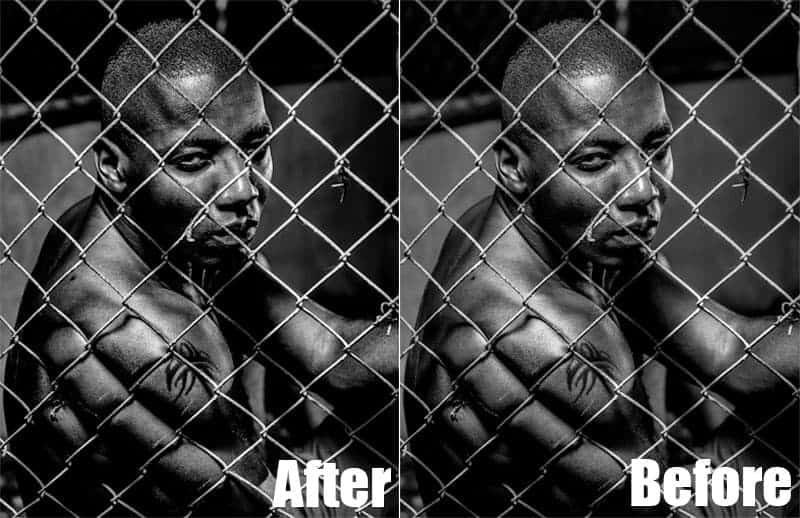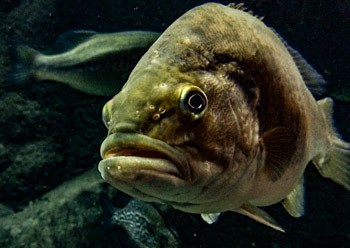What Is Dehaze In Photoshop
Recently, Adobe announced that Lightroom vi.2 adds local aligning capabilities with the dehaze slider. I'thou actually excited for this new feature, as I've been loving dehaze!
I've been pretty critical of Adobe lately and the litany of bugs in Lightroom that have slowed its performance to a near halt. But while the slowness has been driving me absolutely insane, I also experience like tipping my hat to the genius Adobe engineers who released the "Dehaze" tool merely a few months ago.
The purpose of the dehaze tool in Photoshop and Lightroom is to either add or remove atmospheric haze from a photo. If you take a photo with some low-lying fog in the picture that is ruining the detail in the background, a lot of it can be removed by using the dehaze slider. Similarly, you can enhance some fog by adding haze (although I haven't constitute this to be as effective).
Too, random question. If you Add together something chosen DEhaze, what happens? They really should have just called it the "haze filter", not "dehaze" since you lot can slide both ways.
The Dehaze tool has changed a lot of the way that I apply Lightroom and Photoshop now. I utilize it for all kinds of things that have nothing to do with haze, only brand a profound impact. In fact, I'm using information technology many many of the Lightroom presets that I'one thousand putting together for this yr's Lightroom Steal on Blackness Friday (terminate of Nov).

Unbelievably Gorgeous Black and Whites
Black and white photos unremarkably demand a lot of contrast to wait good. Everyone knows that. The problem with most contrast is that information technology is either haphazard (dissimilarity slider) which makes the whites whiter and the blacks blacker without giving y'all whatever ability to choose which specific tones to brighten or darken, or it is more than defined but still global (using the tone curve to punch the contrast in for just the correct shades.
Often, what a photo needs, specially a blackness and white photo, is to add contrast but to i tone. If in that location is a big patch of centre gray in the photograph, information technology looks boring. It'south much more than interesting to have a gradient of gray to add interest to that spot in the photo.
That's where the dehaze tool shines–adding contrast to large patches of center grayness. Bingo!

Dark Photography Wizardry!
Right after the Adobe press event where dehaze was announced, I was all the same under an NDA and then I couldn't talk about it, but I got a bunch of photos in my Lightroom library ready to test the new dehaze slider. As I was flipping through my photos looking for shots with big areas of low contrast (brume), I saw a photo I had of the milky way and I got curious about how information technology would do.
As soon equally I got to exam the tool, I anxiously tried it and I was AMAZED!
1 of the nigh challenging things with night photography is that you have to crank up the ISO and so high that the area betwixt the stars begins to look grey instead of blackness. This is easier if your photographic camera is ISO invariant because you can brand this adjustment to the ISO with just the highlights slider or just in the stars, just either way the photo starts looking well… a little hazy 🙂
For years I have advocated using the blacks sliderinstead of racket reduction in night photography, but the dehaze slider does even better.
Removing Low-cal Fog from Your Lens
Equally winter approaches in the northern hemisphere, I ever have to remember to be cautious virtually condensation forming on my lens. If I'm ever careless and accept the photographic camera out of the purse too apace, it can cause condensation to form on the front of the lens which tin have 15 minutes or more than to disappear.
Sometimes, it can be difficult to tell when the condensation is fully and completely gone and won't bear upon the photo.
I looked through my photos and found one with some low-cal amounts of condensation on it, and the dehaze filter was first-class at removing it. It's certainly not as good equally remembering to let the camera acclimate, just information technology'due south a adept to know that some recovery is notwithstanding possible after the fact.

Removing the Blue Haze on Distant Mountains
Okay, so this i more conventional. But all the example photos I go along seeing on blogs is of removing fog, merely I just wanted to remind anybody that information technology works great on the haze visible on distant mountains.
If you've ever bought a "UV haze filter" for your camera and found that it actually does nothing to remove the haze in distant objects in a landscape, join the order. They just don't work.
I've tested polarizing filters for the same purpose and theymight brand a smidgen of difference in some situations, but other times it does cipher.
The dehaze filter works beautifully in this kind of situation. I used it on the photo of a cormorant fisherman and you can run into the peaks in the groundwork are very articulate. They were faded out earlier.
And before anyone accuses me of animal cruelty over again, please read my response about photographing cormorant fishermen before launching that judgment.

Reducing Glare from Windows
Since I'm frequently traveling to meet upward with readers of Improve Photography around the world in our completely complimentary photography workshops, I often take the opportunity to shoot through the windows of the plane to get a unique perspective of the clouds or the pattern on the mural below.
The problem is that the double-thick windows on an airplane causes a lot of glare and reduced contrast. How do you fix it? You guessed information technology. Dehaze to the rescue.
Determination
Dehaze is an exciting new tool. Those who accept written it off equally "a gimmicky new proper name for contrast" have missed the marker and are losing out on a valuable tool for many photography uses.
Give it a shot! Any fourth dimension you lot detect a large grayed out area, y'all've found a good candidate for the dehaze tool. Y'all'll definitely be seeing information technology used in the Lightroom Steal this Black Friday.
Source: https://improvephotography.com/35067/dehaze/
Posted by: richardsonnabowle2002.blogspot.com

0 Response to "What Is Dehaze In Photoshop"
Post a Comment